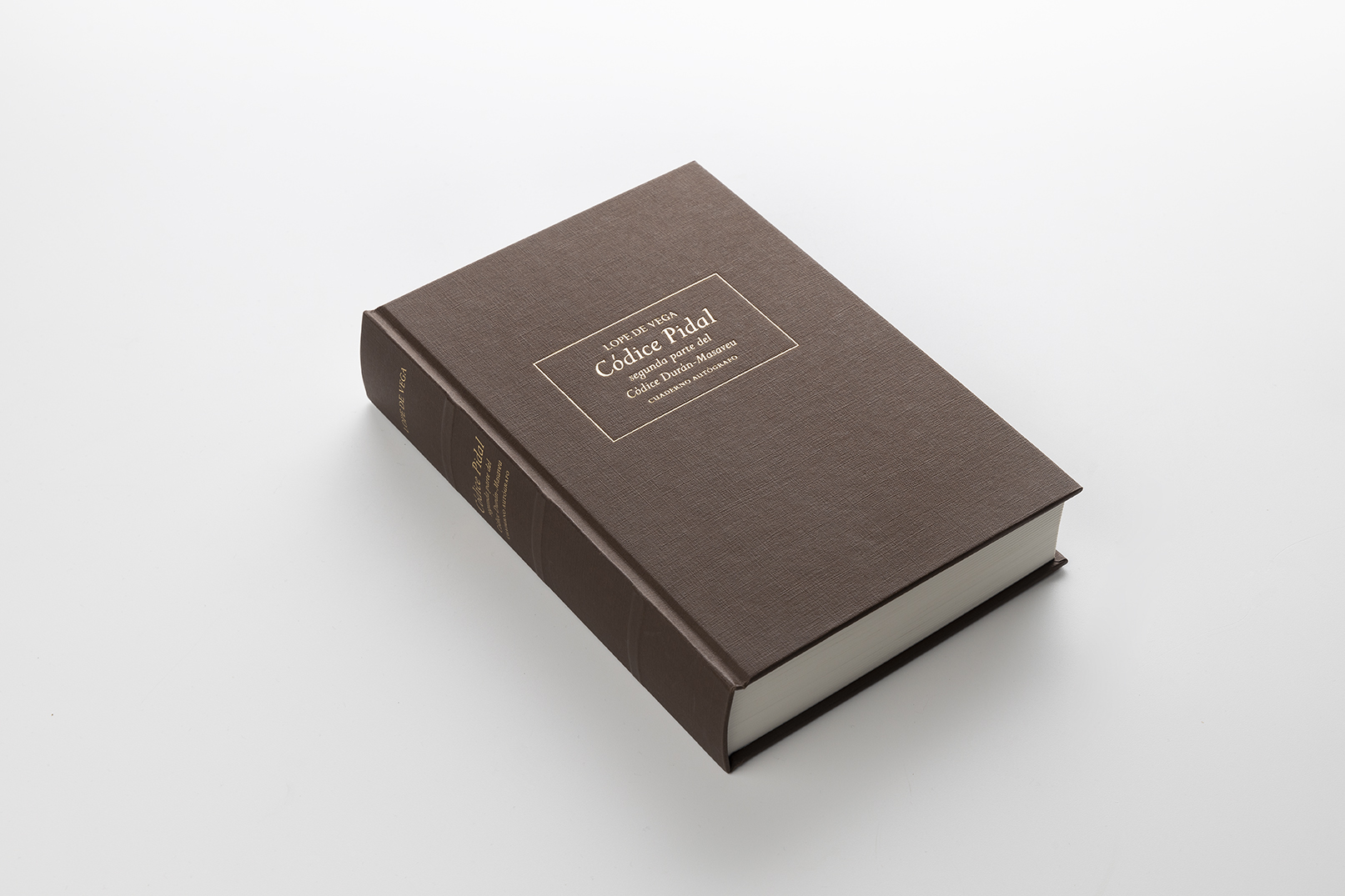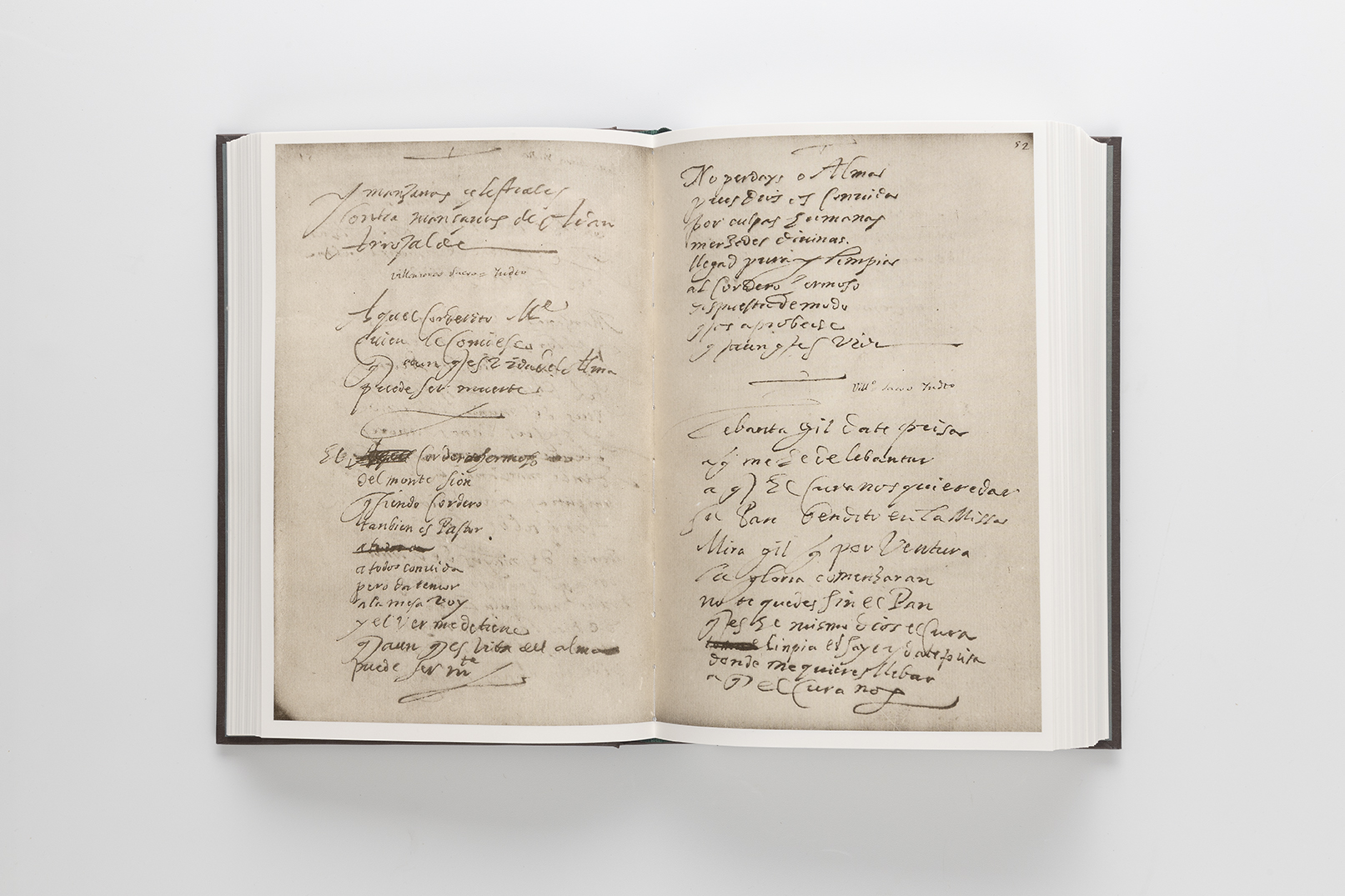
JOINT PUBLICATION OF THE PIDAL CODEX
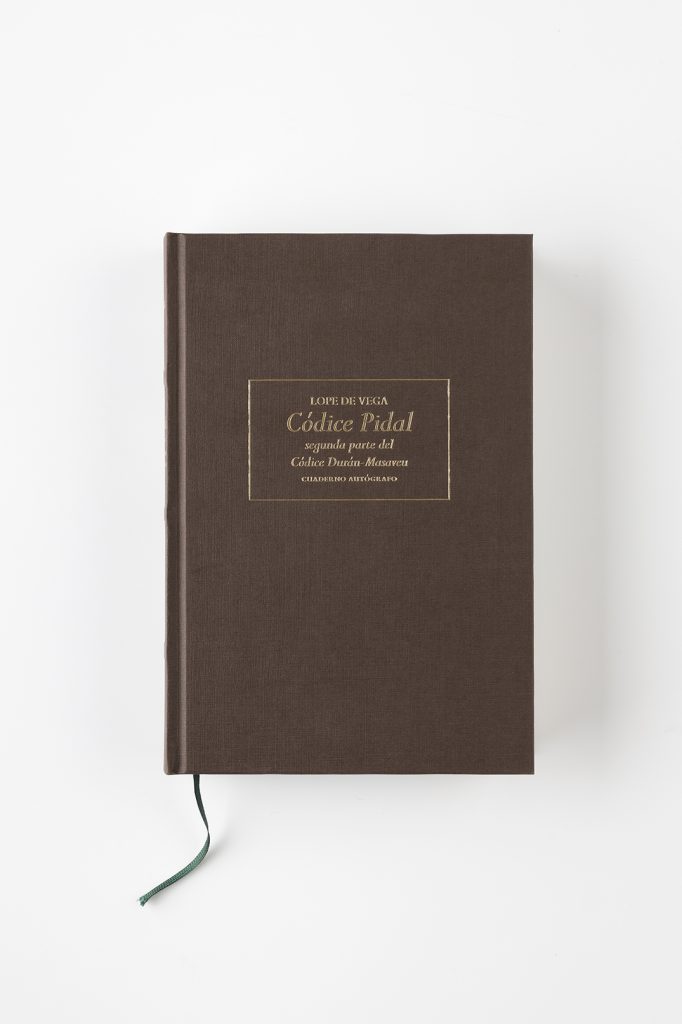
Cover of the publication ‘Lope de Vega. Codex Pidal. Second part of the Durán-Masaveu Codex. Autograph notebook’. Published by: FMCMP. © de la reproducción fotográfica: Fundación María Cristina Masaveu Peterson, 2022.
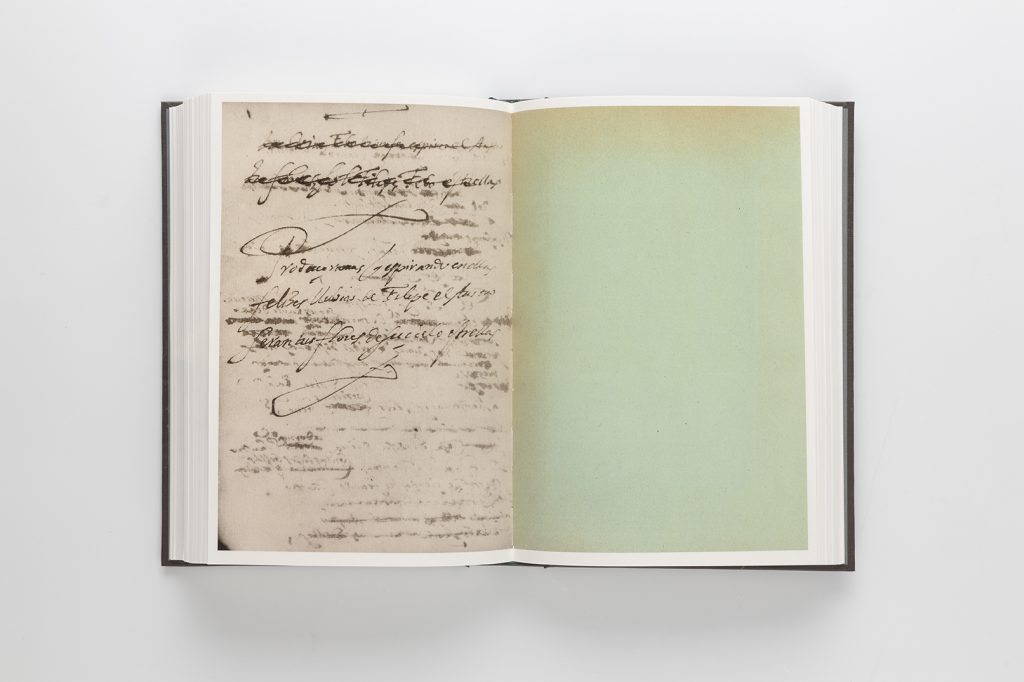
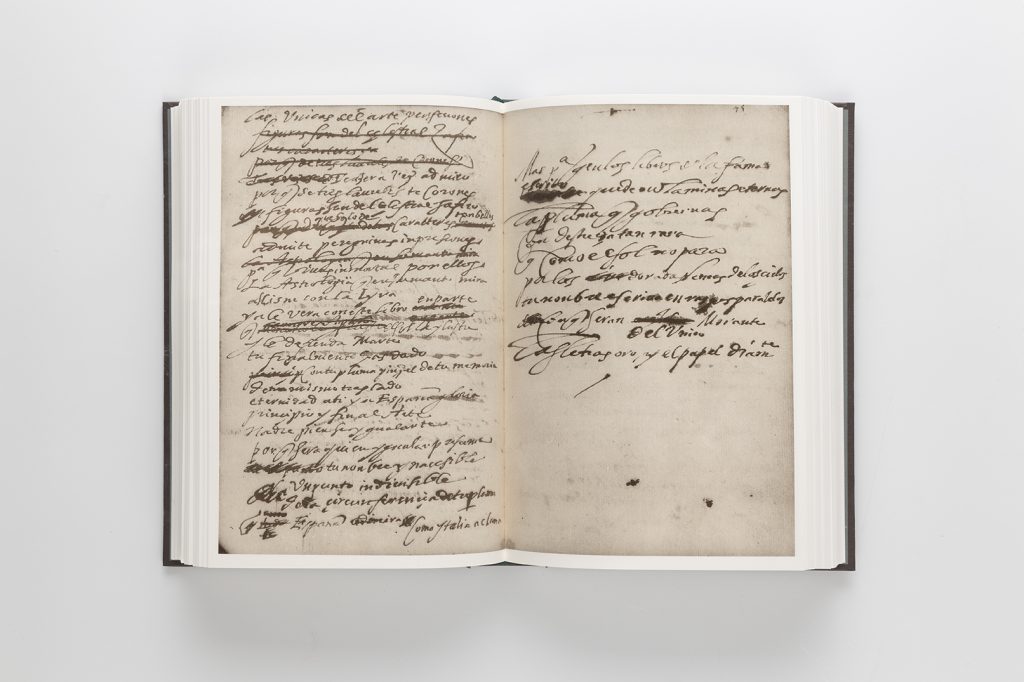
Inside ‘Lope de Vega. Codex Pidal. Second part of the Durán-Masaveu Codex. Autograph notebook’. Published by: FMCMP. © de la reproducción fotográfica: Fundación María Cristina Masaveu Peterson, 20022.
Lope de Vega. Pidal Codex
Second part of the Durán-Masaveu Codex. Autograph notebook
Joint publication by the Fundación María Cristina Masaveu Peterson and the Fundación pro Real Academia Española
Within the framework of their mutual collaboration, the Fundación María Cristina Masaveu Peterson and the Fundación pro Real Academia Española have jointly published the Pidal Codex—the second part of the Durán-Masaveu Codex. The publication was presented on 1 December 2022 at the Real Academia Española with speeches by the director Santiago Muñoz Machado, the honorary director Víctor García de la Concha, and the president of the Fundación María Cristina Masaveu Peterson, Fernando Masaveu.
This lost autograph notebook by Lope de Vega contains sixty-seven poems from the author’s old age (1626–1631), many of them never before published, and provides a fascinating insight into their origin. The volume includes some of the poems which the author published in Corona Trágica (1627), with compositions that would later form part of La Dorotea (1632), as well as various plays in prose, such as La palabra vengada. The Durán-Masaveu Codex reproduces one of Lope de Vega’s last poetic codices, which he worked on between 1629 and 1631.
The notebook is one of three by the Golden Age author that have reached us today. The whereabouts of the original, preserved only in photographs, are unknown. As explained by Víctor García de la Concha, honorary director of the Real Academia Española and co-author of this publication with Abraham Madroñal Durán and Carlos Domínguez Cintas, “The codices are factitious notebooks made up of different pages, notepads or notebooks in which Lope de Vega would jot down his poems with all the crossings-out and changes that every first draft contains.”
This workbook has traditionally been known as the “Durán-Masaveu Codex” after the surnames of two of the owners: Durán corresponds to the earliest owner we know of, and Masaveu to its present owner. “This edition of the Pidal Codex sheds light on hitherto unknown aspects of one of the most important writers in the history of Spanish literature. It also brings to a happy conclusion the project we began in 2011 with the facsimile publication of the Durán-Masaveu Codex,” explains Fernando Masaveu, president of the Fundación María Cristina Masaveu Peterson.
tea (1632) y con comedias en prosa, entre ellas, La palabra vengada. El Códice Durán-Masaveu reproduce uno de los últimos códices poéticos de Lope de Vega: el que el autor fue completando entre los años 1629 y 1631.
Se trata de uno de los tres cuadernos que se conservan del autor del Siglo de Oro, cuyo original, del que solo se conservan fotografías, se encuentra en paradero desconocido. En palabras de Víctor García de la Concha, director honorario de la Real Academia Española y autor de esta edición junto a Abraham Madroñal Durán y Carlos Domínguez Cintas, “los códices son cuadernos facticios, integrados por distintos folios, cuadernillos o cuadernos en los que Lope de Vega iba escribiendo sus poemas con las tachaduras y cambios que todo borrador supone”.
Tradicionalmente, este cuaderno de trabajo se ha denominado Códice Durán-Masaveu por el apellido de dos de sus propietarios: el primero de ellos corresponde al más antiguo conocido, y el segundo, Masaveu, a su dueño actual. “Esta edición del Códice Pidal permitirá conocer aspectos hasta ahora inéditos de la obra de uno de los escritores más relevantes de la historia de la literatura española. Cierra, a su vez, el proyecto que comenzamos en 2011 con la edición facsimilar del Códice Durán-Masaveu”, explica Fernando Masaveu, presidente de la Fundación María Cristina Masaveu Peterson.

